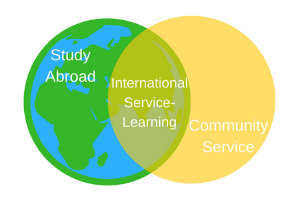International Service Learning
What is International Service-Learning?
Study or Travel Abroad + Volunteering = International Service-Learning
Every year, WCU offers a selection of 1-3 week short–term international service-learning programs over winter, spring, and summer breaks. Some programs offer academic credit, while others do not.
These immersive, experiential learning trips go BEYOND the typical study abroad experience, letting you:
⦁ Engage with the host community in hands-on, meaningful ways
⦁ Build friendships with locals
⦁ Improve your language and intercultural skills
⦁ Make a positive difference with the host community
⦁ Apply classroom learning to real-life situations
⦁ Grow personally and professionally

Winter Break
Spring Break
Summer Break
- Special Education in Guatemala
- Global Health in Oaxaca, Mexico
…and more coming soon! Full program details will be available in early October.
Want us to email you when the application is available? Fill out our interest form.
To view other international program opportunities at WCU, visit the Global Engagement Office’ list of featured WCU programs abroad.
For an immersive service experience here in the U.S., check out our domestic Alternative Breaks.
Tips for Being an Effective, Ethical Volunteer
- Help develop and foster an equally-weighted, mutually beneficial partnership with a community partner.
- Learn about the community and the community partner’s mission, vision, and place within it.
- Approach your service with humility, open-mindedness, self-awareness, respect for the host community, and realistic expectations about your impact.
- Privilege the needs of the host community over your own personal learning goals.
- Understand that your behavior may be scrutinized by the local community, and small actions have far-reaching effects on the health and future of the partnership.
- If your program involves work with vulnerable populations, safeguard their rights
and well-being. For example:
- Students working in a healthcare setting should decline tasks that are beyond their level of training.
- When taking photos or documenting your experience, protect confidentiality of patients, minors, and other vulnerable populations.
- Obtain permission before taking photos and videos, or publishing personal information.
- Be especially sensitive to the vulnerability of children in orphanages.
- Take time during and after the experience to reflect and think critically.
- Upon return to campus, find ways to utilize the lessons learned, through direct service, fundraising, sharing your experience, and/or continued advocacy.
Resources
University of Minnesota’s Global Ambassadors for Patient Safety (GAPS) Free Online Training




